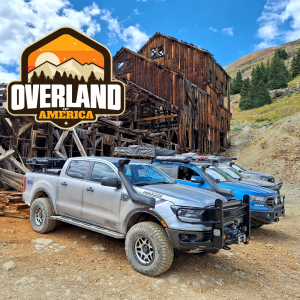You can't compare the price of a 20 yr old truck to prices new. First you have to multiply the old price by the inflation rate as stated by the gov't. Whatever my '97 cost in '97, I'd have to multiply by 1.87 to compare their MSRP today.
Inflation is a killer. Let's say I bought a truck for 10k and sold it later for 10k and said to myself, wow, I got my money back. No. That 10k isn't worth the same as the original 10k, again, you'd have to equalize them. In the last couple years inflation has probably done 15% so in real dollar terms, selling for what you paid, you still lost about 15% on it. To get what you paid you'd have to get 11.5 for it.
I'm not presenting trucks as an investment, they're not, they're a necessary expense. I'm just saying you have to be aware of inflation because it's not trivial and especially over long term it's massive.
I think there is some lower limit where a truck just won't really devalue, leaving inflation out of it. A good, running truck with no major issues, let's say it sells for 5k today as an example, in a few years it's probably still going to sell for 5k if it's kept up. Let's say you kept it for 5 years, and inflation over that period might be 120% these days. That means your selling price 5k is actually 4200 in original dollars you paid (it lost value, as we'd expect, but not tons).
Inflation historically averages 2.5% +/- but the last few years haven't been average. Just something to keep in mind when we talk about used prices. A big part of that is inflation, then you add on shortages, and the market was (is?) crazy.
The best no-risk investment you can make today is treasuries, about 5%, but guess what that still doesn't keep up with inflation so even with interest your money is still worth less every year.
When evaluating a project you always take into account inflation but you have to assume it for the future and if you are wrong you can be screwed.
It makes me almost want to finish my MBA from Syracuse U. I have two courses left which were paid for and I received incompletes in '92. In theory I could finish it, but why. At this point it'd be just for fun. And that wasn't a quickie degree either that was the whole ball of wax.
More on topic, let's say I had 30k and given a choice of a 2019 Ranger or a 1997-gen Ranger. If I spent, let's say, 10k on the old one, for something really good, I could put 20k into treasuries and in a year I have about 1,000 interest which buys me tires for the '97. And the '19 would probably need tires soon anyway.
Granted that's still an expense, but at least if I look at my account, the numbers aren't lower (even though their value is).
The '97 won't really devalue much if I take care of it. The 2019 will, and it doesn't have anything to offer over the '97 except maybe lockers which I could do if I really wanted to.
If you add up the payments (or loss of interest) on the 2019, and the higher insurance and taxes, it looks even worse for the 2019. Plus imo the '97 is better built. Whatever tech we have today was pretty much there by then (open to argument).
2019 would be a status symbol of sorts (2024 would be better). Has warranty, probably. I'd worry less about it breaking down, but, if the '97 is gone through and checked regularly there's no reason to think it not reliable. I've just never been so rich as to get a new vehicle but it's good other people do or we'd never have the used ones!
I went through this thought process when I went to the Ford place one time to try to get old records (had better luck here) and parked next to a 2019 for sale, and looked at the 2019 about 15 seconds and asked myself is it worth it to spend a huge chunk of cash for something essentially the same as what I have? Maybe not even as good? Plus it's used, so you never know what you're getting. For the gigantic difference, I can do a heck of a lot of work on the '97, as it needs it, or upgrades, and still be way ahead. Plus the '19 wasn't red or green. Forest green you mentioned is my other choice besides red but you just don't see it much.













